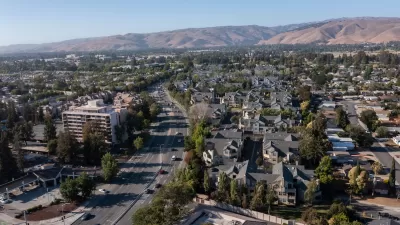The Silicon Valley city of Fremont, already home to some of the highest development fees in the region, is set to increase the cost of most forms of development again. The one exception—affordable housing.

The Silicon Valley city of Fremont, already home to some of the highest development fees in the region, is set to increase the cost of most forms of development again. The one exception—affordable housing.
"Fremont, which already has been charging developers some of the highest impact fees in the state, will raise them even higher in August," reports Joseph Geha.
"City officials say the extra revenue is needed to help keep pace with the costs of providing new or expanded parks, roads and public safety facilities," adds Geha.
Almost all kinds of uses will require increase fees for development, according to the article. Fees for retail, office, manufacturing, and hotel development will increase between 6 percent and 8.6 percent. Fees for market-rate housing developments will increase by 4.5 percent. Fees for affordable housing, however, will drop by 42 percent.
The new development fees include an innovative approach to changes in the use of warehouse facilities, according to Geha, which function more as distribution centers but can also include retail space on site.
The article also includes data from the UC Berkeley Terner Center for Housing Innovation that puts Fremont's development fees in context of similar practices in other Silicon Valley cities.
FULL STORY: Fremont’s high development impact fees to get even higher in August

Alabama: Trump Terminates Settlements for Black Communities Harmed By Raw Sewage
Trump deemed the landmark civil rights agreement “illegal DEI and environmental justice policy.”

Study: Maui’s Plan to Convert Vacation Rentals to Long-Term Housing Could Cause Nearly $1 Billion Economic Loss
The plan would reduce visitor accommodation by 25% resulting in 1,900 jobs lost.

Why Should We Subsidize Public Transportation?
Many public transit agencies face financial stress due to rising costs, declining fare revenue, and declining subsidies. Transit advocates must provide a strong business case for increasing public transit funding.

Wind Energy on the Rise Despite Federal Policy Reversal
The Trump administration is revoking federal support for renewable energy, but demand for new projects continues unabated.

Passengers Flock to Caltrain After Electrification
The new electric trains are running faster and more reliably, leading to strong ridership growth on the Bay Area rail system.

Texas Churches Rally Behind ‘Yes in God’s Back Yard’ Legislation
Religious leaders want the state to reduce zoning regulations to streamline leasing church-owned land to housing developers.
Urban Design for Planners 1: Software Tools
This six-course series explores essential urban design concepts using open source software and equips planners with the tools they need to participate fully in the urban design process.
Planning for Universal Design
Learn the tools for implementing Universal Design in planning regulations.
Caltrans
Smith Gee Studio
Institute for Housing and Urban Development Studies (IHS)
City of Grandview
Harvard GSD Executive Education
Toledo-Lucas County Plan Commissions
Salt Lake City
NYU Wagner Graduate School of Public Service





























